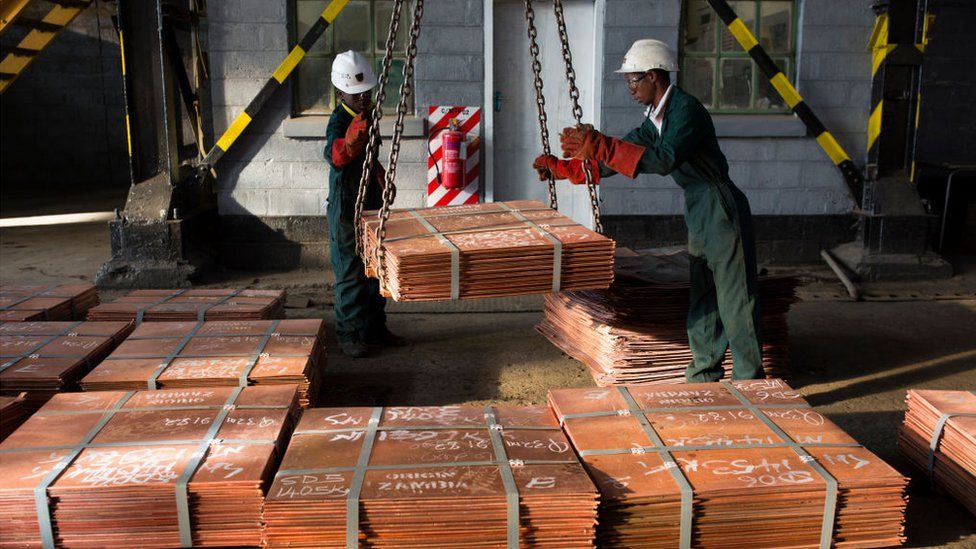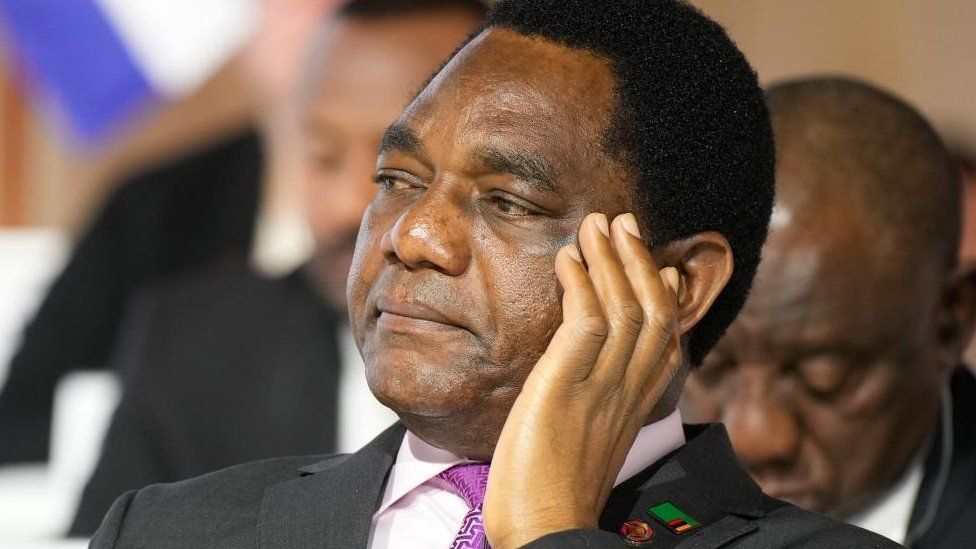The outlines of a deal intended to help his country out of its debt crisis have been revealed, allowing Zambia's President Hakainde Hichilema to finally breathe a sigh of relief.
The copper-rich nation made history in 2020 when it became the first African country to miss a debt payment due to the Covid pandemic. Due to loans and high interest rates, the government was severely constrained in its ability to fund important social programs and infrastructure expansion, both of which were essential for economic growth.
After several months of negotiations, Zambia has now successfully reached new repayment terms with its state creditors on up to $6.3 billion (£5 billion) in debt, including more than $4 billion owed to China.
Zambia had grown impatient with the slow pace of the negotiations, which some blamed on China, which Beijing denied.
President Emmanuel Macron of France, who was instrumental in convincing China to accept, hailed the agreement as "historic.". It is believed that it might open the door for other debt-ridden nations to adopt a similar policy.
The more than $6 billion owed to private lenders still needs to be addressed, Mr. Hichilema acknowledged on Twitter. He added, "But the hard work is not over yet.".
His election in 2021 was partially supported by a pledge to address Zambia's financial problems, which were left over from his two predecessors, Michael Sata and Edgar Lungu, who had permitted Zambia to incur sizable debt to finance infrastructure projects.
The majority of that money is believed to have been lost to corruption, despite the fact that some of it was invested.
Zambia needed to restructure its debt in order to release much-needed funds, even though a bailout agreement had already been reached with the International Monetary Fund (IMF). In order to regain financial stability, promote sustainable growth, and protect the citizens' well-being, this debt restructuring process is an essential first step.
Despite the fact that the agreement's specifics have not yet been made public, it appears that Zambia will be given a longer repayment period of more than 20 years, including a three-year grace period with interest-only payments.
The government has received praise from experts for securing the agreement, and they are optimistic that it will help Zambia's economy.
It will likely boost investor confidence, according to economist Isaac Mwaipopo of the think tank Centre for Trade Policy and Development, but he implores the government to implement an economic recovery plan.
Being on an IMF program for the foreseeable future—for the next three years—means that we must develop a clear plan for rebuilding the economy. Sectors that can be strategically important for growth, boosting job creation, and assisting in the reduction of poverty must be identified. ".

Zambia gains crucial breathing room to stabilize its economy, carry out essential reforms, and pursue long-term growth by renegotiating the terms of its debt. This extra money can be spent on social welfare, infrastructure improvements, healthcare, and education.
The new conditions reduce the burden of debt servicing, lower the risk of default, and maintain the government's creditworthiness. Furthermore, by demonstrating a commitment to addressing its debt problems, Zambia becomes a more alluring location for foreign direct investment.
The people who are in favor of this procedure see it as a vital chance for Zambia to address its debt problems and lay the groundwork for long-term economic growth.
Zambia's credit rating could be lowered as a result of the debt restructuring, which could make future borrowing more expensive for the nation.
Some critics also wonder what the creditors will gain from the renegotiation, but there isn't much information available because the details are scarce.
Dr. Lubinda Haabazoka, dean of the University of Zambia's business school, stated that in order for Zambia to move away from relying on outside investors, the nation needs to develop more domestic investment solutions.
"The process will take a while. We should start looking into alternative revenue streams. New businesses and industries must be developed. We will have a very difficult time convincing people to lend us money because of the debt restructuring, he said.
Zambia's private lenders are now in the spotlight as the IMF prepares to release $188 million from its bailout package to support government spending. While it is anticipated that they will do so, there is no assurance.
Although there is cause for cautious optimism, it is crucial to remember that the road to financial recovery and stability has not yet been traveled in its entirety.
The winner of the 2022 BBC News Komla Dumor Award is Dingindaba Jonah Buyoya, who works for Diamond TV in Zambia.







